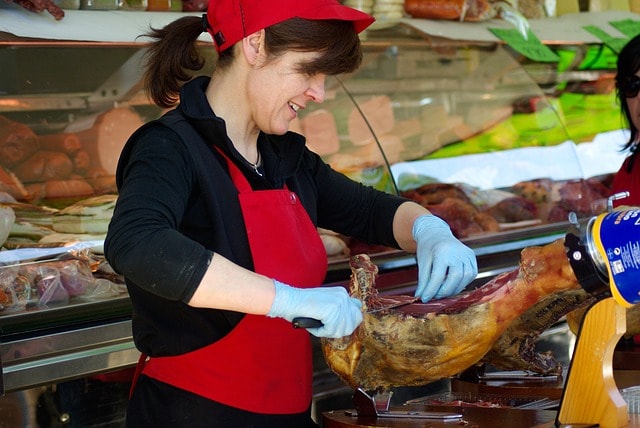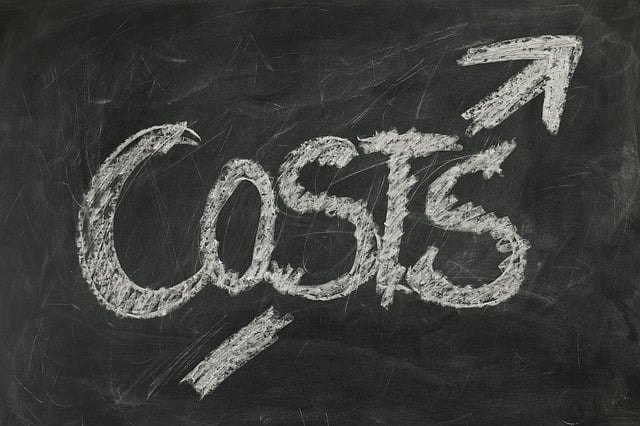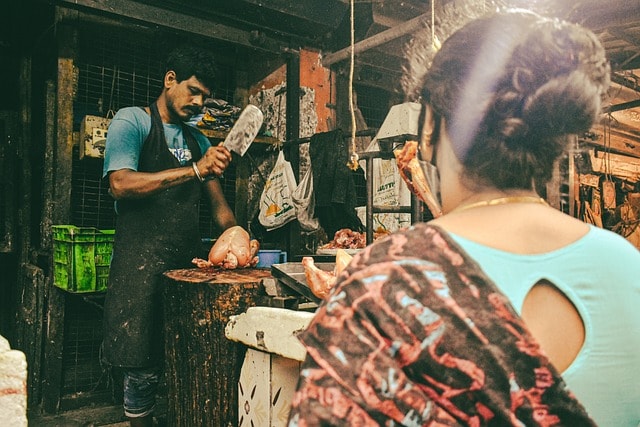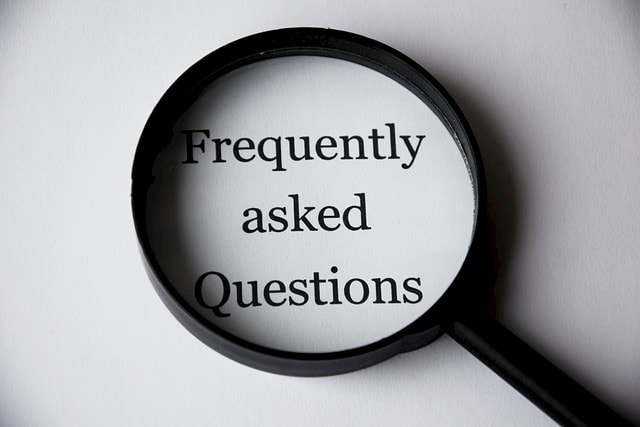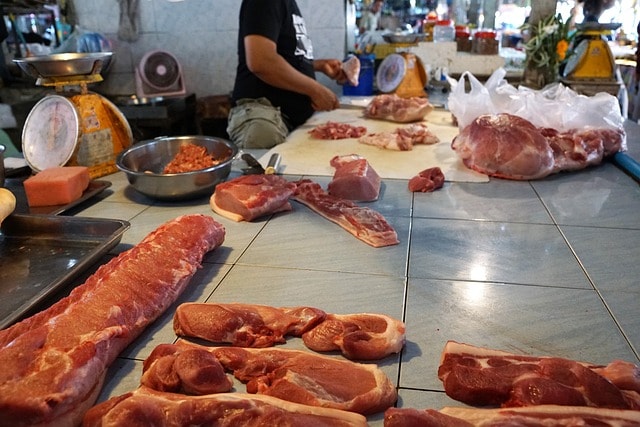What is a Butcher Shop?
A butcher shop is a specialized retail store that processes and sells high-quality meat and poultry products. Unlike the mass-produced offerings often found in supermarket meat departments, butcher shops focus on providing top-notch products. This emphasis on quality drives them to work closely with local farms and suppliers, ensuring that their meat products meet high standards.
The rise of modern food movements, such as farm-to-table and artisanal foods, has significantly boosted the demand for specialty meats. These movements have encouraged the growth of the meat industry, showcasing butcher shops as a viable alternative to traditional food businesses.
The meat market flourishes by offering things customers can’t get anywhere else. This method also draws in consumers looking for something beyond traditional cuts of meat. Some butcher shops even take pride in offering meats from particular breeds or local farms.
What are the costs to open and run a Butcher Shop?
Depending on your market, square footage, and business model, the initial investment often ranges from $100,000 to $250,000. A solid business plan that itemizes all these costs explicitly is essential.
Startup Costs
Location & Lease: The costs of the location and lease will vary widely depending on where you decide to open shop. Urban areas tend to have higher lease rates. Expect anywhere from $20,000 to $50,000 annually. Choosing a strategic location enhances customer experience and satisfaction, making it a critical decision.
Equipment: A butcher shop requires specialized equipment to process, store, and display meat products. On average, expect to spend $50,000 to $100,000 on equipment. Common items include:
- Refrigerators and freezers.
- Meat slicers and grinders.
- Small meat processors.
- Cutting tables.
- Display cases.
- Packaging materials.
- Point-of-sale (POS) systems.
Licenses & Permits: Food safety regulations require butcher shops to obtain multiple licenses and permits, including health department approvals, which can cost from $500 to $2,500.
Initial Inventory: Depending on your market, your initial inventory will require an investment of anywhere from $5,000 to $15,000. This includes meats and miscellaneous products to get started.
Staffing Costs: Hiring your initial staff, including wages and benefits for skilled butchers and support staff, will cost you between $20,000 and $50,000 annually.
Marketing & Advertising: Getting the word out about your new business and driving interest is crucial. Marketing and advertising costs might range from $1,000 to $5,000 to develop your brand identity and awareness.
Grant Opening: Consider a grand opening event, which could cost you anywhere from $500 to $2,000 to bring in your first customers.
Ongoing Costs
Once your shop is open for business, you’ll have to fund ongoing operating costs.
Rent & Utilities: These expenses typically cost $2,000-$5,000 per month.
Inventory Replacement: Inventory costs vary based on demand but average $10,000-$30,000 monthly. Advanced inventory management can help reduce spoilage.
Labor Costs: Labor continues to be a high cost as wages for staff gradually increase.
Equipment Upkeep & Replacement: Keeping equipment in good condition can cost $1,000 to $3,000 annually, with more significant expenses for replacements.
Marketing: Even after opening, marketing efforts should continue, costing about $500 to $2,000 monthly to keep customers engaged and help with loyalty programs.
License Renewals: These renewals will add up to $200 to $1,000 per year in recurring costs.
Business Taxes: Business taxes are another recurring cost, often 15-30% of revenues. That’s why careful planning in these areas is so important. You can stay on top of your cash flow with technical assistance and better inventory management.
What are the methods to Finance a Butcher Shop?
Depending on their financial situation and goals, entrepreneurs have multiple options to finance a meat shop business. Each option has different advantages and drawbacks.
Debt Financing
This is a standard method for securing butcher shop financing. Debt financing means borrowing money from lenders like banks, credit unions, and alternative lenders. Traditional business loans from a national or local bank typically offer lower interest rates, but qualifying for a bank loan is challenging. Traditional lenders often require a robust business plan, excellent credit, and credible financial projections.
Alternative lenders typically provide faster funding with less stringent qualifications. Debt financing allows business owners to keep 100% ownership and control, but debt costs like interest and fees can cut into profitability.
Equity Financing
Equity financing, by contrast, is where you raise capital by selling your business shares. This option also doesn’t have to be paid back as a business loan would, freeing up important cash flow.
It’s a good alternative for those open to sharing ownership and control of the business with investors. Developing connections with investors can provide skills and resources that benefit your butcher shop. With equity financing, you’ll give up some control and share profits.
What Butcher Shop Business Loans are available?
Many small business loans provide financial assistance to help butcher shop owners sustain or expand their operations. Here are some of the best butcher shop and restaurant financing options available.
Equipment Financing
- Loan Amounts: Up to $5 million per piece of equipment.
- Interest Rates: Starting at 3.5%.
- Terms: 1 – 10 years.
- Funding Speed: 3 – 10 business days.
If you need to upgrade or invest in new equipment, equipment financing is perhaps the best choice for your butcher shop. This kind of loan is what butcher shop owners need when purchasing essential equipment such as meat slicers, grinders, or refrigeration.
The equipment being financed typically serves as collateral. By obtaining equipment financing, butchers can modernize their equipment.
Working Capital Loans
- Loan Amounts: $1k – $5 million.
- Interest Rates: Starting at Prime + 3.5%.
- Terms: 3 months – 10 years.
- Funding Speed: 1 – 3 business days.
Working capital loans are beneficial during slower sales cycles to help cover the cost of daily operations. These loans will help pay for basic needs such as payroll, rent, and utilities. They keep things running behind the scenes, even when sales go up or down.
For butcher shops, having a consistent supply of fresh meat and controlling inventory is very important. Access to working capital allows for timely purchases and the ability to take advantage of bulk discounts, ultimately enhancing profitability.
Business Term Loans
- Loan Amounts: $10k – $5 million.
- Interest Rates: Starting at 1-4% p/mo.
- Terms: 3 months – 5 years.
- Funding Speed: 1 – 3 business days.
Business term loans provide a more conventional financing solution with set monthly payments and interest rates. They work well for more extensive, long-term investments such as expanding butcher shop space or remodeling existing facilities.
Merchant Cash Advance
- Loan Amounts: $5k – $1 million.
- Interest Rates: Starting at 1-6% p/mo.
- Terms: 3 – 24 months.
- Funding Speed: 1 – 2 business days.
Merchant cash advances (MCAs) provide quick access to cash by tapping future credit card sales. This advance covers short-term cash flow gaps and allows for immediate inventory or operational cost investments.
Merchant cash advances are not loans; they’re business transactions where the funder purchases future receivables at a discount. Repayment typically comes from a fixed percentage of daily credit card sales.
Business Line of Credit
- Loan Amounts: $1k – $1 million.
- Interest Rates: Starting at 1% p/mo.
- Terms: Up to 36 months.
- Funding Speed: 1 – 3 business days.
A business line of credit gives butcher shops access to flexible, on-demand funding. They can draw on funds as needed, up to their credit limit.
This flexibility meets different needs, whether managing seasonal fluctuations or covering a sudden expense. Interest is charged only on the amount used, making it an efficient funding source for fluctuating short-term financing needs.
Revenue-Based Financing
- Loan Amounts: $1k – $1 million.
- Interest Rates: Starting at 1% p/mo.
- Terms: Up to 36 months.
- Funding Speed: 1 – 3 business days.
Revenue-based financing matches repayment to the butcher shop’s revenue, making it a good choice for shops with fluctuating income. This method reduces stress during leaner times and allows for smoother financial forecasting.
SBA Loans
- Loan Amounts: $1k – $1 million.
- Interest Rates: Starting at 1% p/mo.
- Terms: Up to 36 months.
- Funding Speed: 1 – 3 business days.
SBA loans offer low, competitive interest rates and extended repayment terms. The federal government agency, the Small Business Administration (SBA), backs them. The loan guarantee lowers lenders’ risk and makes financing more accessible for many small business owners, including butcher shops.
What are the benefits of Butcher Shop Business Loans?
Business loans for butcher shops provide critical access to capital, enabling owners to address operational needs, invest in new equipment, and improve customer satisfaction. Financing options are diverse, allowing shop owners to find solutions tailored to their specific requirements. Loans also offer the opportunity to build business credit, improving future financing prospects.
What are the drawbacks of Butcher Shop Business Loans?
While business loans offer many benefits, they also come with risks. Borrowers may face high interest rates or fees. Failure to make timely payments can harm business credit and lead to collateral loss. It’s essential to evaluate the cost of debt against the potential benefits.
Butcher Shop Business Loans Pros & Cons
Pros:
- Provide access to capital for operational needs and growth.
- Enable investment in new equipment and inventory.
- Improve customer satisfaction through enhanced offerings.
- Help build business credit for future financing opportunities.
Cons:
- May come with high interest rates and fees, especially with alternative lenders.
- Risk of damaging business credit with late or missed payments.
- Potential loss of collateral if the business defaults.
- Requires careful evaluation of the cost of debt against benefits.
How can I apply for a Butcher Shop Business Loan?
You can apply for a small business loan through our lender network by following these steps:
Step 1 – Apply online in a few minutes: Use our simple online application to submit a request for business funding. If you need any help along the way, give us a call, chat, or email.
Step 2 – Get expert advice on loan options: An expert, knowledgeable account executive will walk you through all the fine details and requirements. This is to ensure you have all the info you need.
Step 3 – Finalize your application and get funded: Once your funding has been approved and closed, the lender sends the funds to your account so you can start using them to grow your business.
Frequently Asked Questions
Here are the most common questions about butcher shop business loans.
Are Butcher Shops profitable?
Yes, butcher shops can be profitable with the right target market and careful planning. Profitability depends on factors such as location, operating costs, pricing strategies, and the ability to establish a loyal customer base.
Shops that cater to niche markets, such as organic, grass-fed, or locally sourced meats, often enjoy higher profit margins due to the premium prices customers are willing to pay. Additionally, efficient inventory management and minimizing waste are crucial for profitability. Offering value-added products, like prepared meals or specialty cuts, can also boost revenue streams.
How do I start a Butcher Shop Business?
Starting a butcher shop business requires careful planning and execution. Follow these steps to set your business up for success:
Step 1 – Conduct Market Research: Analyze your target market, including local competition and customer demand for specialty meats. Identify trends such as organic, grass-fed, or locally sourced products to determine your niche.
Step 2 – Create a Business Plan: Outline your business goals, startup costs, projected expenses, pricing strategies, and marketing plans. A comprehensive business plan is essential for securing financing and staying on track.
Step 3 – Secure Financing: Determine the capital needed and explore financing options, such as business loans, equipment financing, or SBA loans. Consider alternative lenders if traditional financial resources aren’t accessible.
Step 4 – Find a Suitable Location: Choose a location with high foot traffic and easy accessibility. Ensure the space meets local health and safety requirements for food businesses.
Step 5 – Obtain Licenses and Permits: Acquire the necessary licenses and permits, including food safety certifications, business registration, and local operating permits. Compliance with food industry regulations is critical.
Step 6 – Purchase Equipment and Inventory: Invest in essential equipment like refrigerators, meat grinders, and cutting tools. Stock up on high-quality initial inventory, focusing on specialty items that align with your niche.
Step 7 – Hire and Train Staff: Recruit skilled butchers and customer service staff. Provide training to ensure food safety standards are met, and customers receive top-notch service.
Step 8 – Develop Marketing Strategies: Create a marketing plan to promote your butcher shop. Use social media, local advertising, and loyalty programs to attract and retain customers.
Step 9 – Plan a Grand Opening: Organize an event to introduce your shop to the community. Offer discounts, samples, or promotions to generate buzz and attract initial customers.
Can I get a Butcher Shop Loan with Bad Credit?
While a low credit score limits financing options, butcher shop owners can still access bad credit business loans. However, these financing options typically come with higher interest rates, shorter terms, lower borrowing amounts, and more frequent repayments.
The good news is that most bad credit business loan lenders are online lenders offering quick and convenient applications and fast funding. Some butcher shop owners use bad credit business loans as a short-term financing solution while they improve their credit scores for access to more advantageous and lower-cost options.
Butcher Shop Business Loans – Final Thoughts
Business loans can help butcher shops access the necessary capital to compete, expand, and deliver a unique customer experience. Exploring the available options and choosing the best business loan for your needs is crucial to success.
Ensure your business has the cash flow to repay the small business loan successfully, as taking on debt carries risk. Your business financing solution should have a concrete pathway to increasing revenue at your butcher shop.
Contact us if you have more questions or are ready to apply for a small business loan. Our alternative financing experts can help you find the best business loan for your butcher shop.



